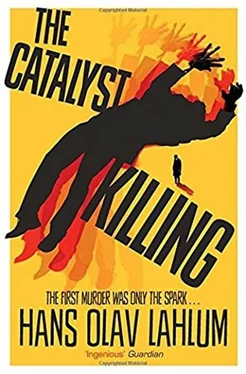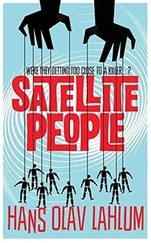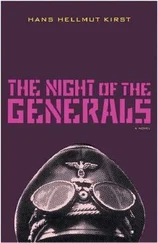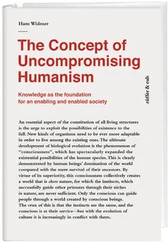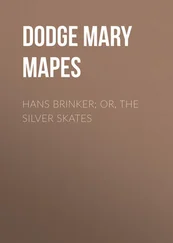After the gunshot, the crowd had obviously panicked and scattered from the stage. There were only three people in the cleared space.
Trond Bratten had dropped the manuscript for his speech, but he was still standing, leaning against the stage, very much alive.
The party leader’s wife was standing in front of him with outstretched arms, like a human shield in the event of more gunshots.
A large book lay open on the ground in front of her. And Miriam Filtvedt Bentsen was lying on the ground beside the book.
Her fair hair fluttered in the wind, but she herself was not moving, lying on her stomach, as a dark stream of blood poured from her head onto her sweatshirt.
It was a terrible sight, and everything inside me froze instantly. Which was perhaps a good thing. I remembered later a wild urge to throw Martin Morgenstierne out of the window, and then to jump out myself. All I remembered from those unreal seconds was that feeling. And Martin Morgenstierne saying, in an almost apologetic voice, ‘She looks like my daughter. I deeply regret that. He was the only one who was supposed to die.’
The wall clock at the main police station showed half past six as I made my way to my boss’s office. He beamed and offered me his hand. The story of how I had saved the life of the opposition leader Trond Bratten, and at the same time solved both of yesterday’s murders, had already been broadcast on the radio and TV. Congratulatory telegrams were streaming in. Unless the nascent rumours that the crown princess was pregnant were confirmed, it would headline the evening news, and be on the front page of all the major newspapers tomorrow. But no matter what, I had been right all along and was a role model for the country’s police force.
Normally my boss’s effusive congratulations would have had me in seventh heaven. But this time I remained downcast, almost depressed. I thanked him and told him the truth: that the fate of the badly wounded young woman hung heavily on my conscience.
He nodded appreciatively and said that I not only was I an exceptionally good policeman, I was also an exceptionally good person. I thanked him once again, but certainly did not feel like one.
My boss asked in an irritatingly casual manner if there was any news about the ‘wounded party’. I replied that she had still been alive on arrival at hospital, but that it was touch and go whether she would survive or not.
We sat in silence for a while after this.
As we sat there, I ran through the two terrifying moments I had experienced with Miriam Filtvedt Bentsen.
The first was when I looked out of the window at 66 Thomas Heftye’s Street and saw her lying on the asphalt below, covered in blood and not moving. It suddenly felt as though it was my fault and I was entirely responsible if she died. I was the one who had bumped into her, and what I had told her had prompted her to push her way forward to stop Trond Bratten from getting onto the stage. And I was the one who had pushed the assassin to one side so that the bullet hit her. I thought I would never smile again if she died. I had never met her parents, or her little brother. But all the same, I could feel how painful it would be to have to tell them of her death.
The second horrifying moment was at Ullevål Hospital, when I got there just after the ambulance. After waiting for fifteen minutes, I was able to speak to the surgeon and senior doctor for a couple of minutes while preparations were being made for the operation. It was an unnerving experience.
The surgeon, Bernt Berg, was in his fifties, and his measured movements instilled confidence and trust. He had a very grave face, and only replied in short sentences when asked a question. He reminded me a little of Martin Morgenstierne, which made the situation feel even more alarming and unreal.
I said that Miriam Filtvedt Bentsen had been shot while trying to save Trond Bratten from being assassinated, and that her survival was also extremely important for my ongoing investigation. Given this, I asked him to call me at the station as soon as there was any news following the operation.
His face was devoid of expression and emotion when he replied ‘yes’ to this.
I then asked what he thought the chances were that she would survive.
With equal equanimity, he said: ‘About fifty-fifty, if we are able to remove the bullet.’
So I asked him what the chances were of that.
His voice still sounded unmoved when he told me: ‘There is an imminent danger that she will die soon if we cannot remove it. The bullet is lodged just beside her main artery.’
I thanked him, once again asked him to call me as soon as there was any news, and wished him luck with the operation. He nodded briskly and left without saying any more.
The surgeon inspired both fear and confidence at the same time. I thought he seemed like a man who knew what he was doing, someone who was not likely to lose control or tremble, no matter what happened.
I caught a brief glimpse of Miriam Filtvedt Bentsen as she was wheeled into the operating theatre. This vaguely reassured me. The bleeding had stopped. I could see she was still breathing. And even though she was in a coma, her face still seemed to emanate strong will. Otherwise, she lay completely still, with bandages around her neck and shoulders.
I felt totally impotent and feared that I might faint if she should suddenly die there in front of me. So I turned and walked away as quickly as I dared down the corridor.
I was suddenly roused from my thoughts when the telephone on my boss’s desk started to ring. And I jumped when he then immediately said: ‘Yes, he is right here. I’ll pass on your message immediately.’
He saw the fear in my eyes and hastily carried on: ‘The Labour Party and the Confederation of Trade Unions send their thanks and congratulations. Flowers are on the way!’
I needed to think about something else and said that we should perhaps discuss the murder of Marie Morgenstierne again. My boss nodded.
‘Even after all this upheaval, you still think about your duties. I have called Danielsen, who was unfortunately unable to come at such short notice.’
I saw the hint of a smile on my boss’s face when he said this. We both knew that Danielsen lived alone, and never went anywhere other than work.
‘He asked me to congratulate you on solving the case, but added that the mystery of Marie Morgenstierne’s death remained unsolved. I take it there is still nothing to indicate that her father had anything to do with it?’
I shook my head.
‘Martin Morgenstierne confessed his part in yesterday’s two murders in the car on the way here, but fiercely maintains that he had nothing to do with his daughter’s death. It was, on the contrary, the loss of his daughter that removed the final hurdles that prevented him from carrying out the planned assassination. He had been under considerable pressure from Christian Magnus Eggen and Frans Heidenberg for some time. They have expressed their disappointment that the assassination was unsuccessful, but still maintain that it was justified and necessary. And this all corroborates what Henry Alfred Lien wrote in his diary.’
My boss nodded.
‘How did you work it out? Danielsen and I thought it seemed almost impossible to get anything out of the diary entries.’
I remembered what Patricia had shouted at me just as I left, ‘B is for bank manager, and SP is for Super Pater, that’s to say, Martin Morgenstierne!’ and quickly stitched together an official explanation that fitted.
‘Lien used abbreviations based on occupations. A was for architect and D was for director. So B could then well be bank manager. It also seemed to fit that SP in Falko Reinhardt’s note might stand for “Super Pater”, which was his nickname for Martin Morgenstierne. Luckily I realized this in the nick of time when I was only a few hundred yards away.’
Читать дальше
